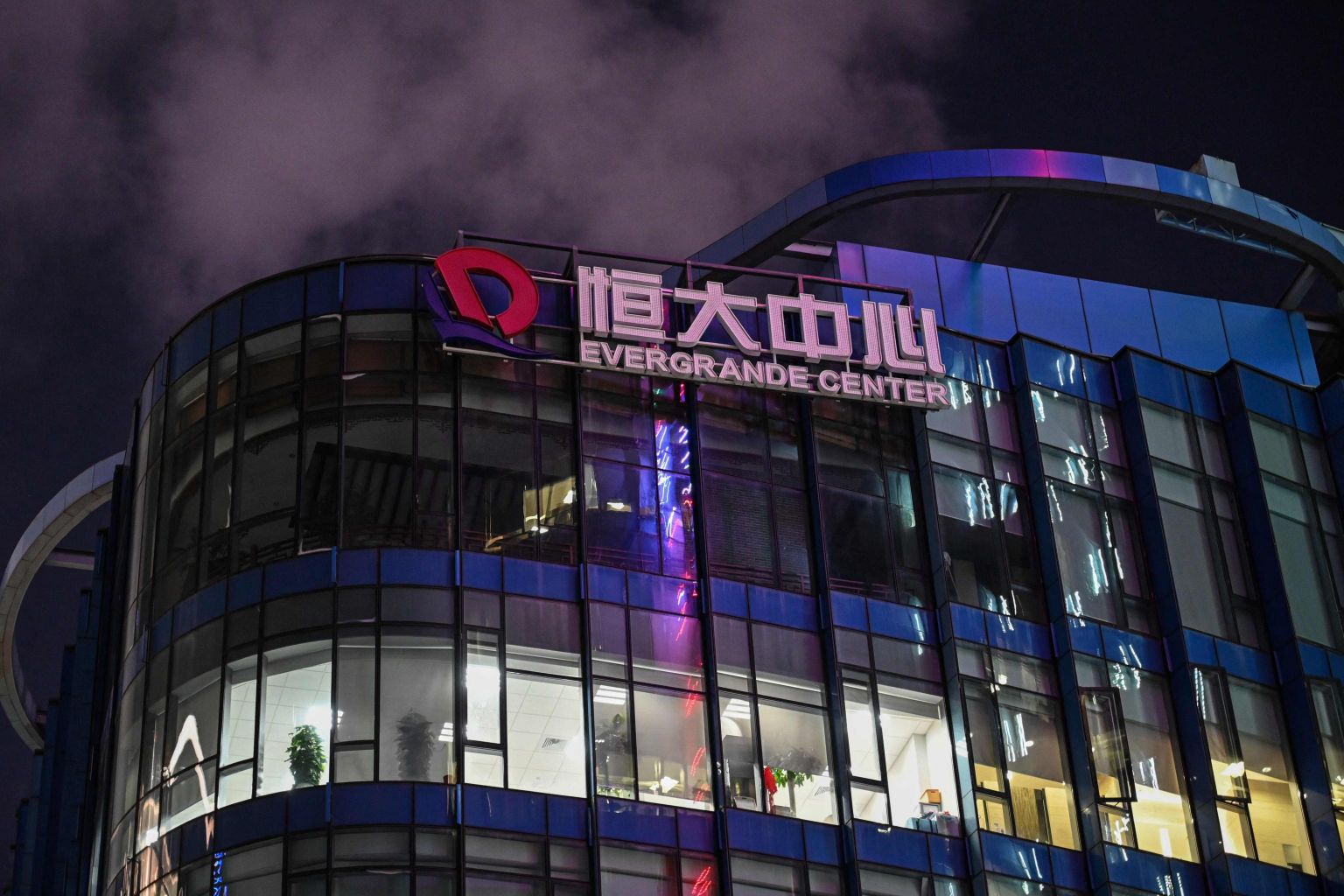China Evergrande defaults on its debt. Now what?
Sign up now: Get ST's newsletters delivered to your inbox

China's central bank has blamed Evergrande's "own poor management and reckless expansion" for its problems.
PHOTO: AFP
HONG KONG (NYTIMES) - For weeks, global markets have been watching the struggles of China Evergrande Group, a teetering real estate giant weighed down by US$300 billion (S$409.5 billion) or more in obligations that just barely seemed able to make its required payments to global investors.
On Thursday (Dec 9), three days after a deadline passed leaving bondholders with nothing but silence from the company, a major credit ratings firm declared that Evergrande was in default. But instead of resolving questions about the fate of the Chinese behemoth, the announcement only deepened them.
The firm, Fitch Ratings, said in its statement that it had placed the Chinese property developer in its "restricted default" category. The designation means Evergrande had formally defaulted but had not yet entered into any kind of bankruptcy filing, liquidation or other process that would stop its operations.
It is the nature of that next step - bankruptcy, a fire sale or business as usual - that remains unknown. In the United States and many other places, bondholders could push an unwilling company into some form of reorganisation, usually in court, and divvy up the pieces.
That may still happen. But Evergrande is faltering in China, where the Communist Party keeps a firm hand on corporate meltdowns to keep them from spreading out of control. With Evergrande, the risk is high: A sudden unwinding of the company could hit the country's financial system or, potentially, the many homeowners in China who have already paid for Evergrande apartments that are yet to be built.
The company's largely resigned investors are now waiting to see what Evergrande, under the advice of a group of financial types tied to the state, will do next.
"We all expected that Evergrande was not going to be able to pull a rabbit out of their hat," said Michel Lowy, chief executive of SC Lowy, an investment firm that has a small position in Evergrande bonds.
"Now the ball is in their court to come up with some form of restructuring proposal," he said.
Evergrande did not respond to a request for comment. Fitch said the company had not responded to its own request for confirmation about whether it had met or missed an US$82 million payment to bondholders due on Monday, which prompted the ratings firm's Thursday move.
Fitch on Thursday also put Kaisa, another large and distressed developer, into its "restricted default" category after the company failed to pay bondholders US$400 million earlier this week.
These defaults are testing a long-held understanding among foreign investors that Beijing would ultimately step in to save its biggest companies.
For years, many investors gave money to companies like Evergrande on the basis of this assumption. But more recently, the authorities have shown greater willingness to let companies fail in order to rein in China's unsustainable debt problem.
To emphasise this point, China's central bank has blamed Evergrande's "own poor management and reckless expansion" for its problems and said the crisis was limited to Evergrande. Mr Yi Gang, the central bank governor, indicated on Thursday that Evergrande would go through something resembling a typical reorganisation, suggesting a bailout was not in the cards.
"The risk of Evergrande is a market incident which will be properly handled in accordance with the principles of marketisation and rule of law, and the rights and interests of creditors and investors will be protected in accordance with the law," he said.
Evergrande had already said it would "actively engage" with its foreign creditors to come up with a plan for restructuring. But it is clear that Beijing will play a role. Earlier this week, Evergrande said officials from several state-backed institutions had joined a risk committee that would help the company restructure itself.
Beijing has been front and centre in the aftermath of past corporate disasters. Three years ago, Beijing seized control of Anbang Insurance Group after detaining its chairman, who was later sent to prison for fraud. Early last year, local government officials stepped in to seize control of HNA, a transportation and logistics conglomerate saddled with debt from expensive overseas acquisitions. Under their guidance, the troubled company was pushed into administration.
Foreign investors challenge that trend at their peril. The Communist Party controls the local courts and has a history of leaving foreign investors with little or nothing.
Investors could go after assets overseas, but the process could be messy.
"Evergrande is complex and has entities in companies both inside and outside the People's Republic of China," said Mr Daniel Anderson, a partner at the law firm Ropes & Gray in Hong Kong.
"There isn't a clean, single legal mechanism that can be implemented to restructure the group," he said. "As a result, it will have to be across jurisdictions, which will make it highly complex."


